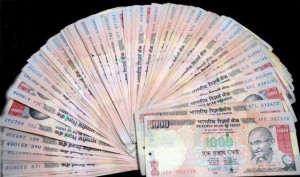Saif Ali Khan has tried doing a lot many new things in his career. After his career got rejuvanated with Dil Chahta Hein, he worked in period pieces, irreverant movies, and even tried to give his intellectual hero image a tweak. While as an actor he has had a varied resume, it is debatable whether his movies have worked at the box office or not. This week, we see the release of Happy Ending, a movie starring him with Govinda, Kalki Koechlin, Ranvir Shorey and Illena D’Cruz. It has a sprinkling of cameos. Here is the complete review of the Saif Ali Khan starrer Happy Ending.
Happy Ending Story
Happy Ending is the story of Yudi, a down and out writer, whose last book was published five and a half years ago. Little does he know that he is broke, and that dawns upon him only when his car is repossessed. Going to his agent, he finds out that he shares his agent with the up and coming Aanchal Reddy, a writer in the romantic genre.
Completing his down and out life is a stalker girlfriend and a friend who is somewhat of a puppet at the fingers of his wife, and of course, we forget the ex-girlfriend who is now married, and mother to three children – triplets.
In this life comes Armaan, an aging actor – a single screen star, by his own admission – who is looking to conquer the multiplex, and to this end, he hires Yudi to make a mishmash of the biggest Hollywood blockbusters, so he can work in an inspired movie.
Of course, all this takes a backseat when Yudi gets close to Aanchal, and how Yudi balances his love and professional life forms the rest of the story.
Happy Ending Script and Screenplay Review
There are a couple of types when it comes to romcoms. The first one is where the two central characters are the issue, either they don’t like each other, or they are not that much into each other, etc. The second type is where the characters are deeply in love with each other, but there is an issue. Either one is career oriented, or one is a loser, or one is engaged, or both are engaged – hell, even married! And of course, there is the Indian traditional romcom, where the couple love each other but the issue is either money, family, or something that had happened between the two families a gazillion years ago.
While Happy Ending is not a traditional Indian romcom, it is not original, and ends up being a poor cyclostyle of the Hollywood styled romcoms. Therefore, people who do not like romcoms actually have precious little to enjoy in the movie. Even the people who enjoy romcoms will be put off by the wafer thin script of the movie.
There is no chemistry between Saif and Illena, mainly because the movie focuses more on Saif than Illeana. Interestingly, though both are writers and central characters, there is not a single scene give to Illeana to create her character, making this just another run-on-the-mill male oriented movies that Bollywood, as well as Hollywood churn with abandon. It’s as if Khan got busy doing his deo shoots and they had to put Illeana, or Kalki, or Ranveer in the movie. We wonder whether such me centric movies work today.
What intrigues us more is the addition of so many tracks, right from the ex-married-girlfriend to the bromance to the stalker girlfriend to the aging actor hiring the writer. None of these have any effect on the main plotline, that is a liberal Indian version of so many romance movies that we have seen. If each of these scenes would be edited out of the movie, it would not have any effect on the movie. Even the one scene where Yudi accepts that he loves Aanchal could be replaced with anyone having him talking with his alterego.
Which is the second aspect of the movie that is mildly entertaining, apart from the cameo of Govinda. Someone should seriously, frankly, sit down and write an epic role for this guy, and we would bet our last laptop that it will be an epic, out of this universe movie. In his four scenes, he added so many layers to this frothy romcom that we wonder what he’d do with 18 reels.
Anybody who has ever spent time with even a middling moviestar (your truly included) will give a knowing nod when they see Govinda portraying exactly that.
This is not to say that the movie is a complete failure. There are some interesting scenes. People following Bollywood will know how different Saif and Govinda are, like chalk and cheese. That chemistry is crackling, unfortunately the director and screenplay writer decide to only whiff over it and decide to give more time to the two central characters playing strip poker.
Final Point:
In the end, we can only be thankful that Bollywood romantic comedy movies have taken gigantic steps away from the family warfare/rich poor divide cliches that ruled in the eighties and the nineties. Happy Ending is an experiment that could have launched the Bollywood romantic genre into another constellation, but fails in its endeavor.


















